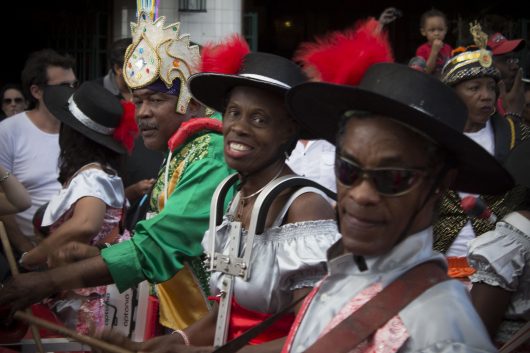French Aid to Ease Poverty in Martinique

Martinique is a small island in the Lesser Antilles of the Caribbean. This insular region of France has a population of 385,551. The official language is French, but the local Antillean Creole dialect is still widely spoken. Despite Martinique’s Human Development Index (HDI) of 0.946, which is the 24th highest HDI in the world according to the United Nations, the country has fallen victim to a series of economic and environmental misfortunes in recent years.
Partly to blame for the rise in poverty in Martinique is the global drop in fuel prices from 2008 to the present. Martinique’s petroleum drilling and refining infrastructures have been unable to keep up with the global market price. Martinique’s petroleum export value has suffered an unprecedented drop from 28% to minus 7% profitability between 2014 and 2015, putting a major burden on their economy.
Another problem facing Martinique and neighboring islands like Guadeloupe is the pollution of Chlordecone, an endocrine-disrupting pesticide that was used on banana farms in the Basse-Terre area of Guadeloupe which lies 105 miles north of Fort-de-France, Martinique’s capital city. “The chlordecone is trapped in the mud on the estuary and is released every time there’s a storm. It will go on for generations,” says Nicolas Diaz, a biologist working for Guadeloupe regional council.
France gave $33 million between 2008 and 2010 to access the scope of the pollution, and conduct research. Scientists of the report concluded that the pesticide has entered into many aspects of Martinique’s food and drinking supply, as well as the environment; introducing a lot of serious health problems onto the island, including a rise in prostate cancer. The poor are the ones that are affected most by chlordecone pollution. “About 80,000 people live in areas where the soil is contaminated and 13,000 absorb more chlordecone than the reference dose per day, simply by eating their own vegetables,” according to professor William Dab, head of the Science Committee for the Martinique and Guadeloupe Chlordecone Plan.
Fishermen have also taken a toll from the pollution as the local lobster and fish populations contain unsafe levels of the pesticide. In response, French overseas minister to Martinique, Victorin Lorel, a native of Guadeloupe, has been instrumental in advocating for a $2.66 million aid package to Martinique’s fishermen to ease the industry loss now and into the future. Lorel also has promised a new “ambitious plan” for fisheries in France’s lesser Antilles overseas departments.
The European Union, as a part of its goal to bring all EU members up to Europe 2020 targets for smart, sustainable, and inclusive growth has allocated €520,951,695 between 2014-2020 to Martinique. The aim is to rebuild infrastructure, increase renewable energy production, improve the skills of the impoverished population and generally raise the quality of life, by lowering poverty.
In addition to the incredible contributions from the EU and the French government, there has been a large effort in France to provide humanitarian aid to help with poverty in Martinique. There are numerous organizations that are involved in providing human services/sending volunteers to the satellite territory, as well as setting up food drives and clothing drives to try to lower risks of poverty in Martinique. It is encouraging to see different entities join together to provide this French outer department hope for their future.
– Joshua Ward
Photo: Flickr
